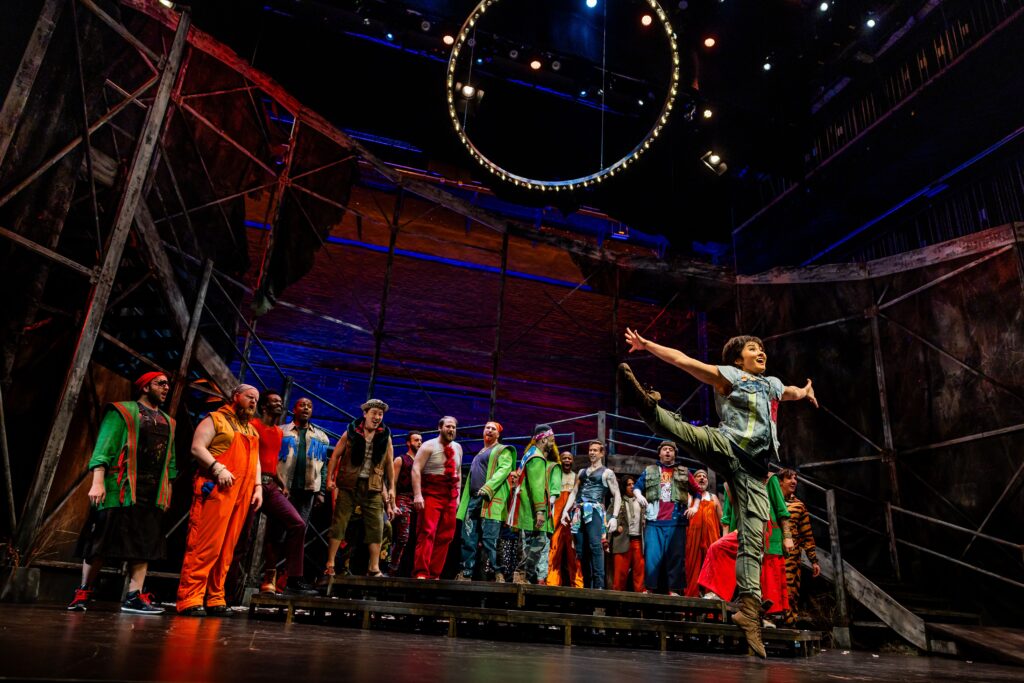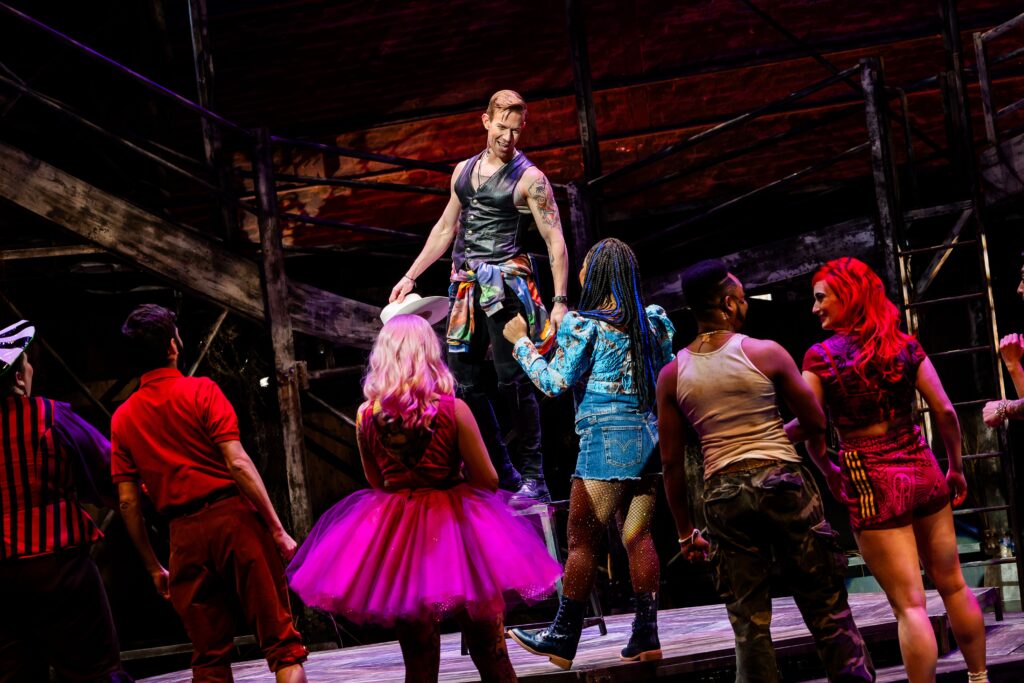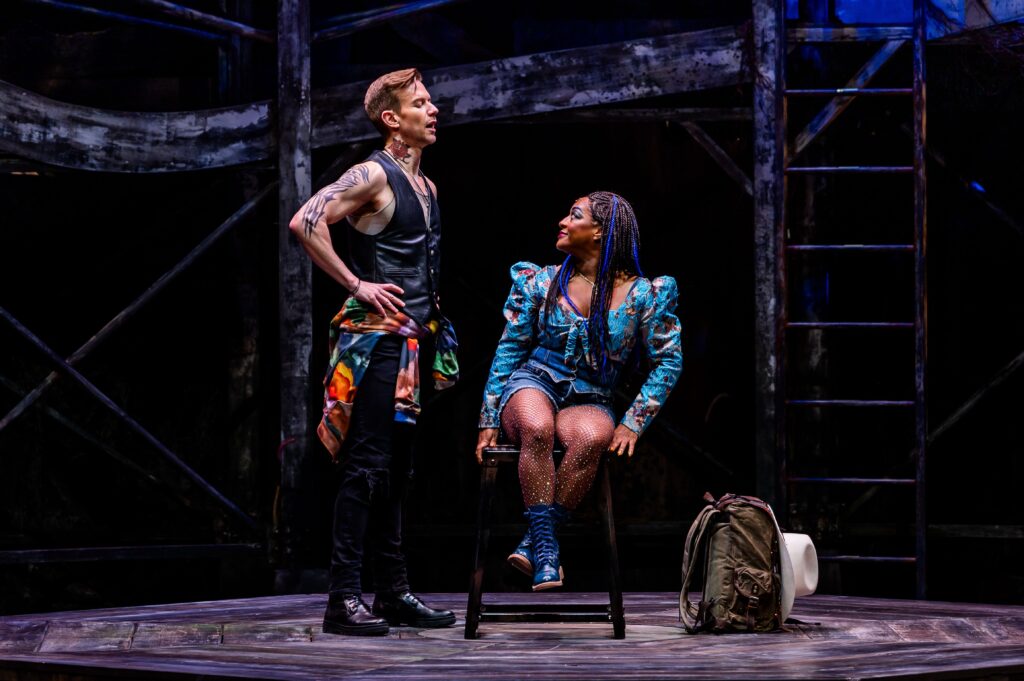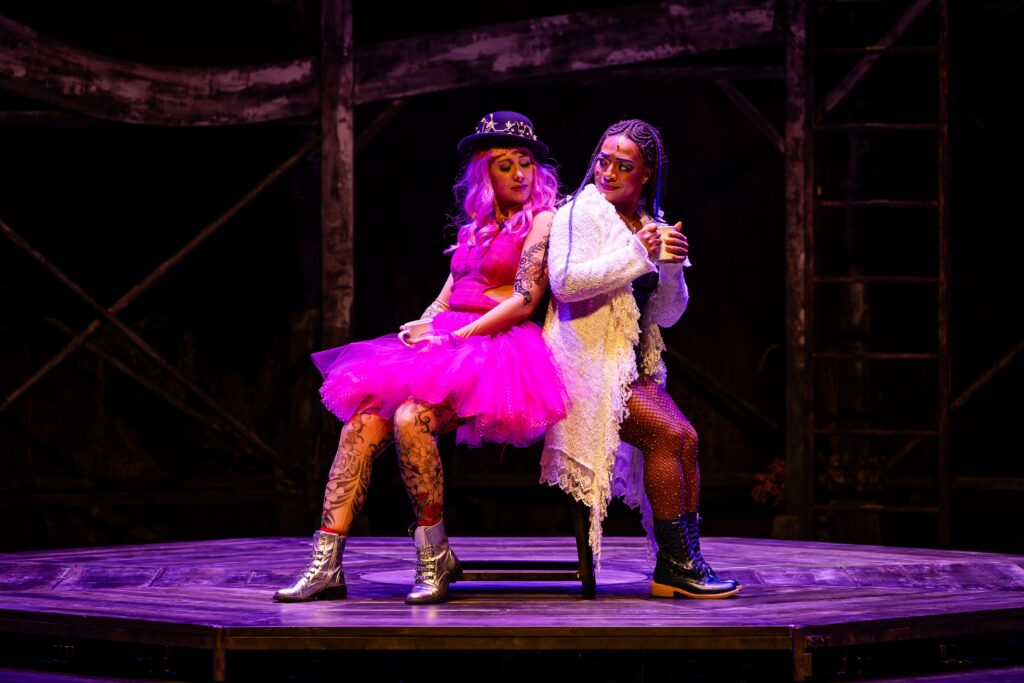
“Rodgers and Hammerstein’s ‘Carousel’”; 80th Anniversary Production. Music by Richard Rodgers. Book and Lyrics by Oscar Hammerstein II. Conducted by David Angus. Directed by Anne Bogart. Presented by Boston Lyric Opera, Emerson Colonial Theatre, 106 Boylston Street, Boston through April 13.
By Michele Markarian
From the moment two stern police officers open the large chain-link gates to reveal a cast of colorfully clad misfit New Englanders at a carnival, it’s obvious that this isn’t going to be a staid rehashing of “Carousel”, the much-beloved and oft-produced musical ultimately immortalized on film with Shirley Jones and Gordon McRae as the mismatched lovers. This “Carousel” sparkles with originality, grit and passion, as well as with the operatic voices and excellent acting and dancing skills of the talented cast. In short, it’s a beautiful pageant of a show that amplifies a very sad yet uplifting story.

Billy Bigelow (Edward Nelson) is a loutish but attractive carnival barker that all the girls pine for. His boss, the widowed Mrs. Mullin (a brooding Sarah Heltzel), has a special claim on Billy, which is threatened when it’s clear a young woman in the crowd more than catches his eye, the feisty Julie (Brandie Sutton). Billy falls for Julie, marries her, and finds himself out of a job. Things go from bad to worse as Billy’s lack of income takes a toll on his fragile self-esteem. The shaky marriage between Billy and Julie is in direct contrast with Julie’s best friend, Carrie (the magnetic Anya Matanovic), and the stable Mr. Snow (Omar Najmi), a practical man with a plan. After learning he is going to be a father, Billy attaches himself to the corrupt Jigger (Markel Reed), gets involved in a robbery gone bad, and, seeing no way out, kills himself. Once dead, Billy is given one last chance to redeem himself to the daughter he’s never met, and to the wife he’s left behind.

The productions I’ve seen in the past have played up the Good Girl Meets Bad Boy dynamic, but the casting here is richer, more complex. Sutton’s Julie is feisty and outspoken, and her feeling for Billy convincingly comes across as maternal – she sees a wounded boy in the man and wants to make him better. When she sings “What’s the Use of Wond’rin” – a song about loyalty to your lover – to Carrie, she sings it with confidence, not resignation, even though “Common sense may tell you that the ending will be sad”. And Nelson, as Billy, is as wonderful an actor as he is singer, covering up Billy’s wounded vulnerability with anger and toughness. You can see him struggling to make sense of things, unlike the laid back and confident Jigger, who Reed gives a smart and funny edge to, despite his degeneracy.
It’s hard to cover up certain aspects of the script – lines like “He’s unhappy because he ain’t working. That’s why he hit me” are tough to hear. And in spite of his attractiveness, Billy is just so damn dumb! How many rounds of “21” is he going to play with Jigger before he figures out Jigger’s cheating? You could see why Julie feels the need to take care of him – God knows he needs it. And there’s a character onstage in orange coveralls reading a book called “Carousel” who sometimes interacts with the actors, showing them the book. Who was he? Why?

The gorgeous voices and beautiful staging, though, far surpass any foibles of the script. The spirit of community and the idea that one can be salvaged through love is a powerful message that leaves one feeling refreshed and somehow relieved. If there’s hope for Billy Bigelow, there’s hope for us all. For more information and tickets, go to: https://blo.org/

